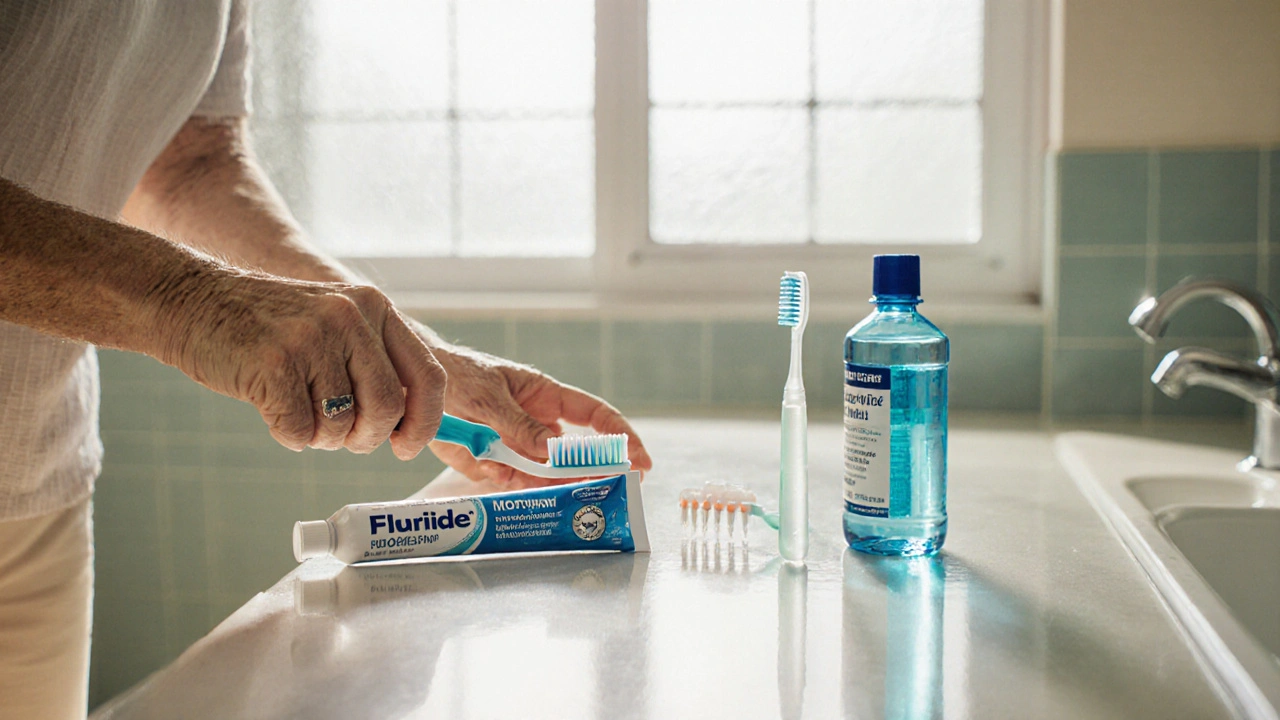
Senior Oral Prophylaxis Checklist
Daily Oral Care Routine
Complete these steps each day to maintain healthy teeth and gums:
Lifestyle & Nutrition Tips
Maintain healthy habits to support oral wellness:
Track your progress below:
When it comes to Oral Prophylaxis a preventive dental care routine that stops plaque buildup, gum disease, and tooth decay before they become serious problems, seniors can keep their smiles bright well into their 80s and beyond. Maintaining good senior oral health isn’t about expensive treatments-it's about smart habits, the right tools, and regular professional check‑ups.
Why Oral Health Changes With Age
As we get older, the mouth goes through several natural shifts. Saliva Production typically drops by 20‑30% after age 60, reducing the mouth’s natural cleaning action. Less saliva means food particles linger longer, giving bacteria a chance to multiply.
At the same time, Gum Disease also known as periodontitis, becomes more common because the immune response weakens with age. Even mild inflammation can lead to bone loss around teeth, making them wobble or fall out.
Understanding these changes helps you target the right preventive steps before problems snowball.
Daily Prophylactic Routine
Adopting a simple, consistent routine makes a huge difference. Here’s a step‑by‑step plan that works for most seniors:
- Brush twice daily with a soft‑bristled brush. Choose a Fluoride Toothpaste containing at least 1000ppm fluoride to strengthen enamel and fight decay.
- Use an Interdental Brush a tiny brush that fits between teeth and around dental work, cleaning spots a regular brush can’t reach once a day.
- Rinse with an alcohol‑free Mouthwash that contains chlorhexidine or essential oils to reduce plaque and freshen breath without drying out the mouth.
- If you wear dentures, clean them after meals with a denture‑specific cleanser and a soft brush. Denture Care involves soaking the prosthesis in a mild cleaning solution and rinsing thoroughly before putting it back.
These four actions take less than ten minutes but tackle the biggest culprits of decay and gum disease.
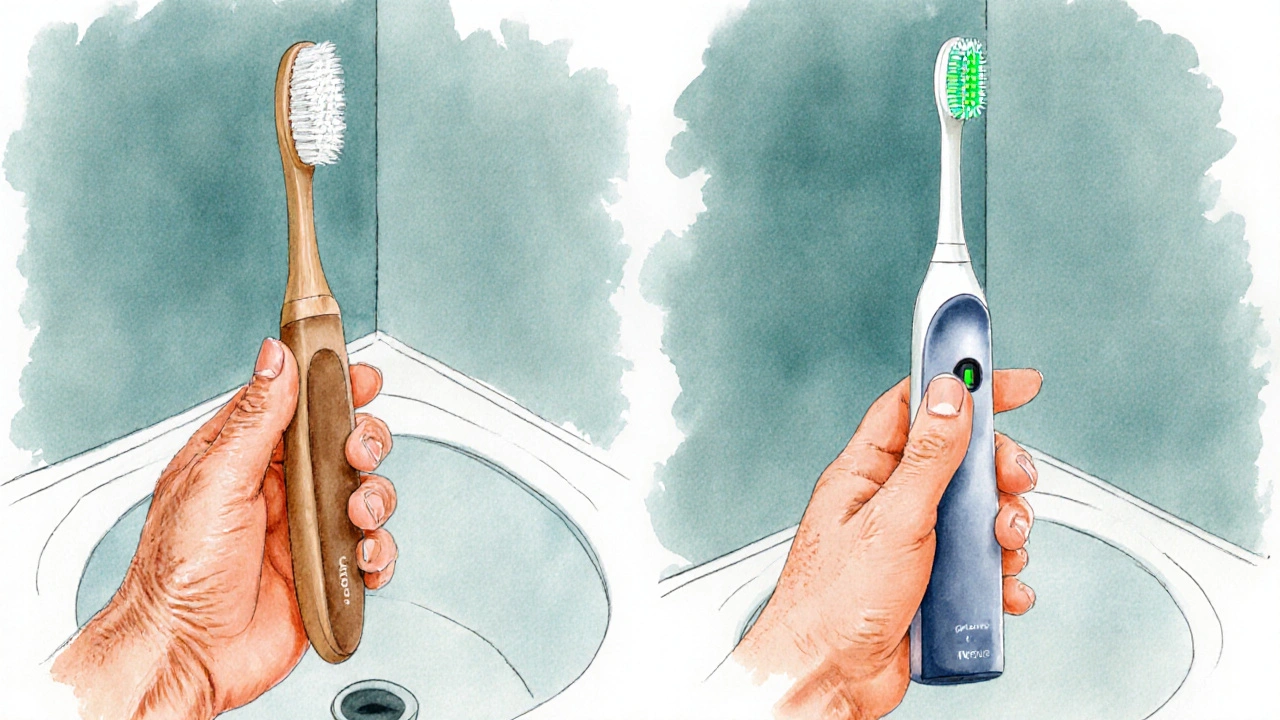
Choosing the Right Tools
Not all brushes are created equal, and seniors often benefit from a few design tweaks. Below is a quick side‑by‑side look at manual versus electric options.
| Feature | Manual Toothbrush | Electric Toothbrush |
|---|---|---|
| Ease of use | Requires proper technique | Automatic oscillation reduces need for skill |
| Comfort | Soft bristles are gentle | Often includes pressure sensors to avoid gum injury |
| Cost | Under $5 | $30‑$150 upfront, replace heads every 3‑4 months |
| Effectiveness | Removes up to 60% of plaque | Removes up to 90% of plaque when used correctly |
For many seniors, an electric brush with a larger handle and soft, rotating heads makes brushing less tiring and more thorough. If budget is tight, a high‑quality manual brush with a built‑in tongue scraper can still do the job.
Professional Care Schedule
Even the best home routine can’t replace a dentist’s eye. Aim for at least two professional visits per year:
- During a Dental Visit a routine check‑up that includes gum assessment, bite analysis, and oral cancer screening, the hygienist will perform a scaling that removes hardened plaque (tartar) that brushing can’t reach.
- Ask the dentist about a fluoride varnish or sealant, especially if you have exposed roots or recent fillings.
- If you wear dentures, schedule a check‑up every six months to ensure a proper fit and address any sore spots.
Keeping a simple calendar-say, “Dental Thursday, March 14”-helps you stay on track.
Nutrition and Lifestyle Tips
What you eat and drink plays a huge role in oral health:
- Limit sugary snacks and acidic drinks; they feed decay‑causing bacteria.
- Stay hydrated. Water stimulates saliva, which washes away food remnants.
- Include calcium‑rich foods like milk, cheese, and leafy greens to support tooth enamel.
- Avoid tobacco and excessive alcohol; both accelerate gum recession and increase cancer risk.
Even small changes-like swapping a soda for plain water at lunch-can boost protection.
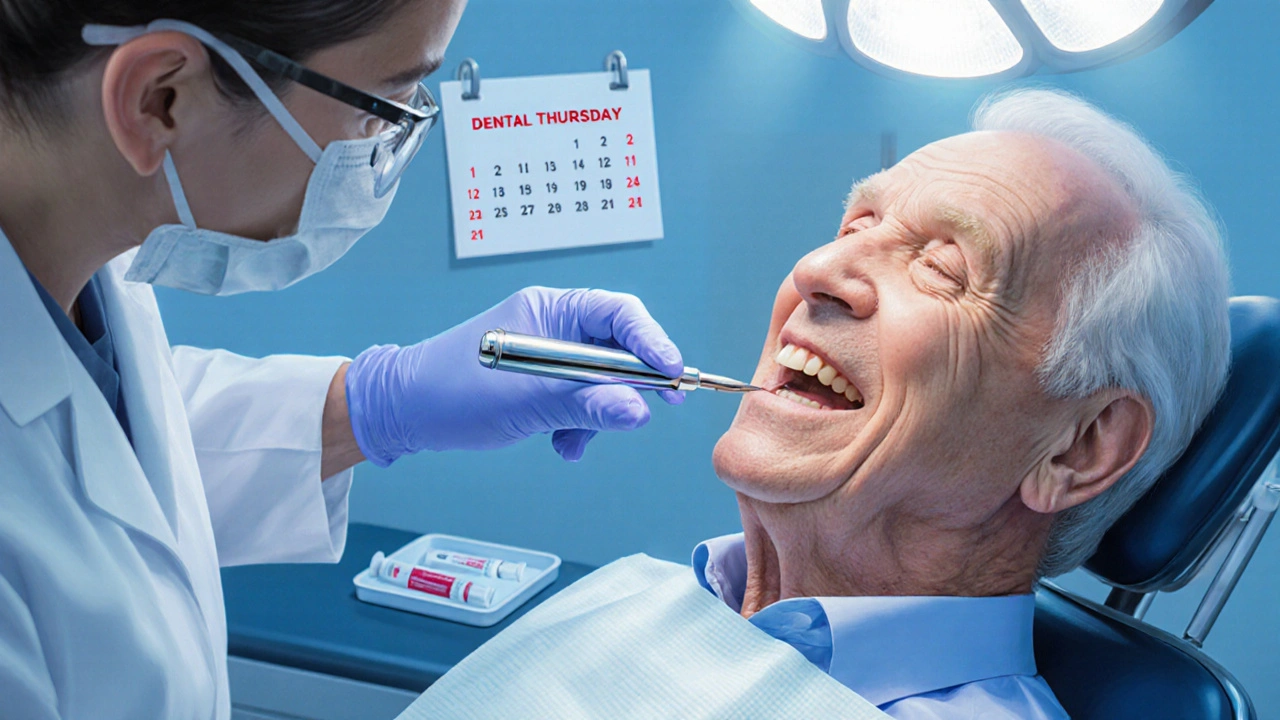
Common Pitfalls and Pro Tips
Many seniors stumble over a few recurring mistakes. Spot them early and correct course:
- Over‑brushing: Pressing too hard can wear enamel and irritate gums. Use a pressure‑sensor brush or ask your dentist to demonstrate the right force.
- Skipping night brushing: Bacteria multiply while you sleep. A quick swipe before bed matters as much as the morning routine.
- Neglecting denture hygiene: Food particles trapped under a denture can cause inflammation. Clean both the prosthesis and the underlying gum tissue.
- Ignoring dry mouth: If you feel a sticky feeling, sip water, chew sugar‑free gum, or discuss saliva‑stimulating products with your doctor.
Pro tip: Keep a small travel kit-soft brush, fluoride toothpaste sample, and a mini mouthwash-in your bag. A quick freshen‑up after meals while out can prevent plaque from setting.
Quick Checklist for Daily Success
- Brush twice with fluoride toothpaste.
- Use an interdental brush or floss once daily.
- Rinse with alcohol‑free mouthwash.
- Clean dentures or removable appliances after each meal.
- Stay hydrated; aim for 6‑8 glasses of water.
- Schedule dental visits every six months.
- Limit sugary/acidic snacks.
Print this list, stick it on your fridge, and tick off each task. Consistency beats occasional perfection.
Frequently Asked Questions
How often should seniors replace their toothbrush?
Every three months, or sooner if bristles become frayed. Worn bristles lose their cleaning power and can damage gums.
Is flossing still necessary if I use an interdental brush?
Yes, but many seniors find interdental brushes easier on sensitive gums. Use whichever tool reaches the spaces between your teeth best.
Can I use regular mouthwash with alcohol?
Alcohol‑based rinses can dry out the mouth, worsening decay risk. Choose an alcohol‑free formula that still contains antibacterial agents.
What signs indicate I need to see a dentist sooner?
Persistent bleeding while brushing, a sudden loose tooth, chronic bad breath, or any sore that won’t heal should trigger an immediate appointment.
Are there special toothpaste formulas for dry mouth?
Yes, look for toothpaste labeled “xerostomia” or containing xylitol. These help retain moisture and lower bacterial growth.
Adam O'Rourke
Oh wow, another senior dental checklist – because we all love counting the same old steps on repeat 🙄
Mary-Pat Quilty
Ah, but consider the ancient rite of brushing, a ritual as old as the Celtic hills themselves! In our lore, a clean smile wards off the banshee of decay, so let us not scoff at the humble brush, dear friend. Surely, a little dramatis personae in oral care can turn the mundane into mythic triumph. Remember, a toothy grin is the true treasure of Tir na nÓg, even if we misspell a few words along the way, like “cheerfull” or “teethh”.
Patrick McGonigle
Maintaining oral health in seniors is essential for overall well‑being.
The daily routine should begin with brushing twice a day using a soft‑bristled brush.
Fluoride toothpaste with at least 1000 ppm strengthens enamel and reduces decay.
After brushing, an interdental brush or floss should be used to clean between teeth.
This step removes food particles that a brush cannot reach.
Rinsing with an alcohol‑free mouthwash helps lower plaque levels without drying the mouth.
For denture wearers, cleaning the denture after each meal prevents bacterial buildup.
A denture cleanser and soft brush are recommended for thorough cleaning.
Drinking six to eight glasses of water daily supports saliva production, which naturally cleanses the mouth.
Regular hydration also helps prevent dry mouth, a common issue in older adults.
Professional dental visits twice a year allow the dentist to detect problems early.
During the visit, scaling removes hardened plaque that cannot be removed at home.
Fluoride varnish or sealants may be applied to protect vulnerable tooth surfaces.
Nutrition also plays a role; calcium‑rich foods support tooth structure.
Finally, avoiding tobacco and limiting sugary drinks reduces the risk of gum disease and tooth loss.
Keisha Moss Buynitzky
It is commendable that you are seeking structured guidance for senior oral health, as such diligence often leads to improved quality of life.
Shivam yadav
I wholeheartedly agree; integrating simple, culturally aware practices such as regular water intake can bridge traditional habits with modern dental recommendations.
pallabi banerjee
Indeed, a gentle reminder to keep a small oral‑care kit in your bag can make the routine less burdensome for anyone.
Alex EL Shaar
Honestly, this whole checklist reads like a bored dentist’s bedtime story – bland, repetitive, and full of cringe‑worthy buzzwords. Who needs a “daily oral care routine” when you can just spit on a brick? The tables comparing manual vs. electric brushes are a waste of bandwidth; pick any brush and move on. And don’t even get me started on “fluoride varnish” – it’s just a fancy term for chemical paste that scares people. Stop trying to sound scientific, you’re just scaring seniors with jargon and unnecessary alarm. In short, cut the fluff and give us simple, straight‑forward advice, or nobody will read it.
Anna Frerker
Patriotic smiles beat anything else.
Julius Smith
Wow, love the national pride 🙃🙃🙃, but maybe focus on real dental tips instead of slogans, okay?
Brittaney Phelps
Let’s keep the momentum going – a clean mouth today fuels confidence for tomorrow!
Kim Nguyệt Lệ
Your enthusiasm is appreciated, however, the phrase “Let’s keep the momentum going” should be followed by a comma and a period to maintain proper punctuation.
Rhonda Adams
Thanks for the correction! 😊 Your keen eye helps us all stay sharp and clear.
Macy-Lynn Lytsman Piernbaum
Ever thought that every brushstroke is like painting a tiny canvas of health? 🌟 Keep those strokes alive, and the masterpiece will shine.
Alexandre Baril
Exactly, a regular routine is the frame that holds the artwork together, ensuring it never cracks.
Stephen Davis
Picture this: your teeth are a squad of tiny guardians, each flossed and polished to sparkle like armor before a grand adventure. When you drink water, you’re giving them a fresh battlefield, and the denture cleaner? That’s their secret weapon. Keep the squad armed, and decay won’t stand a chance!
Grant Wesgate
Love the vivid imagery! Just a quick note: “guardians” should be plural without “a” before it, and “battlefield” could be “battle field” for clarity. 👍


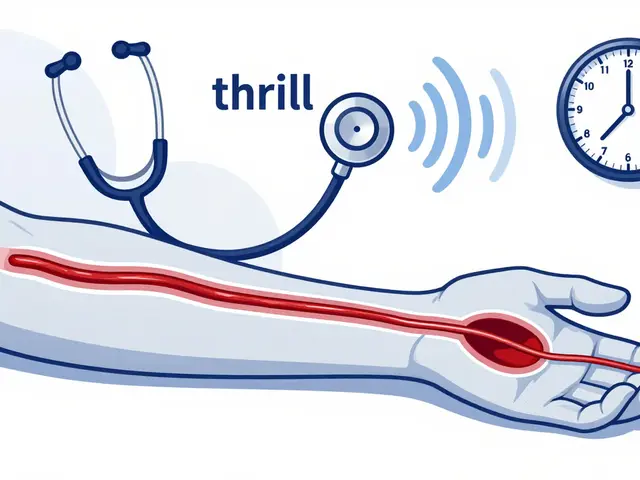
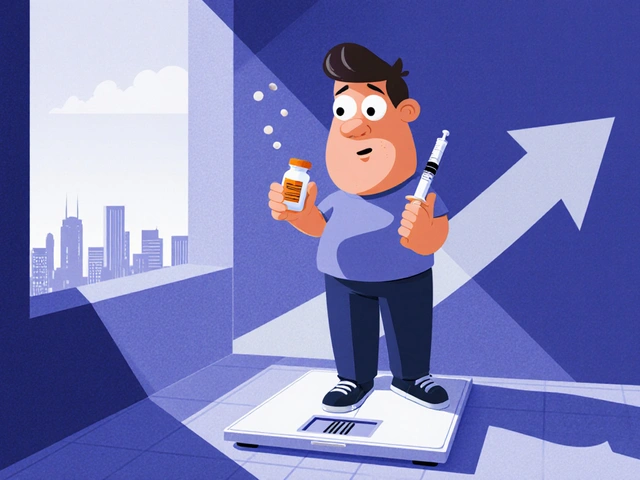

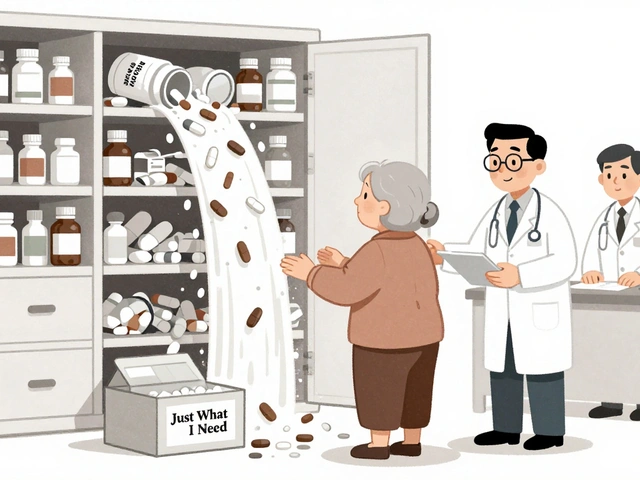
Write a comment